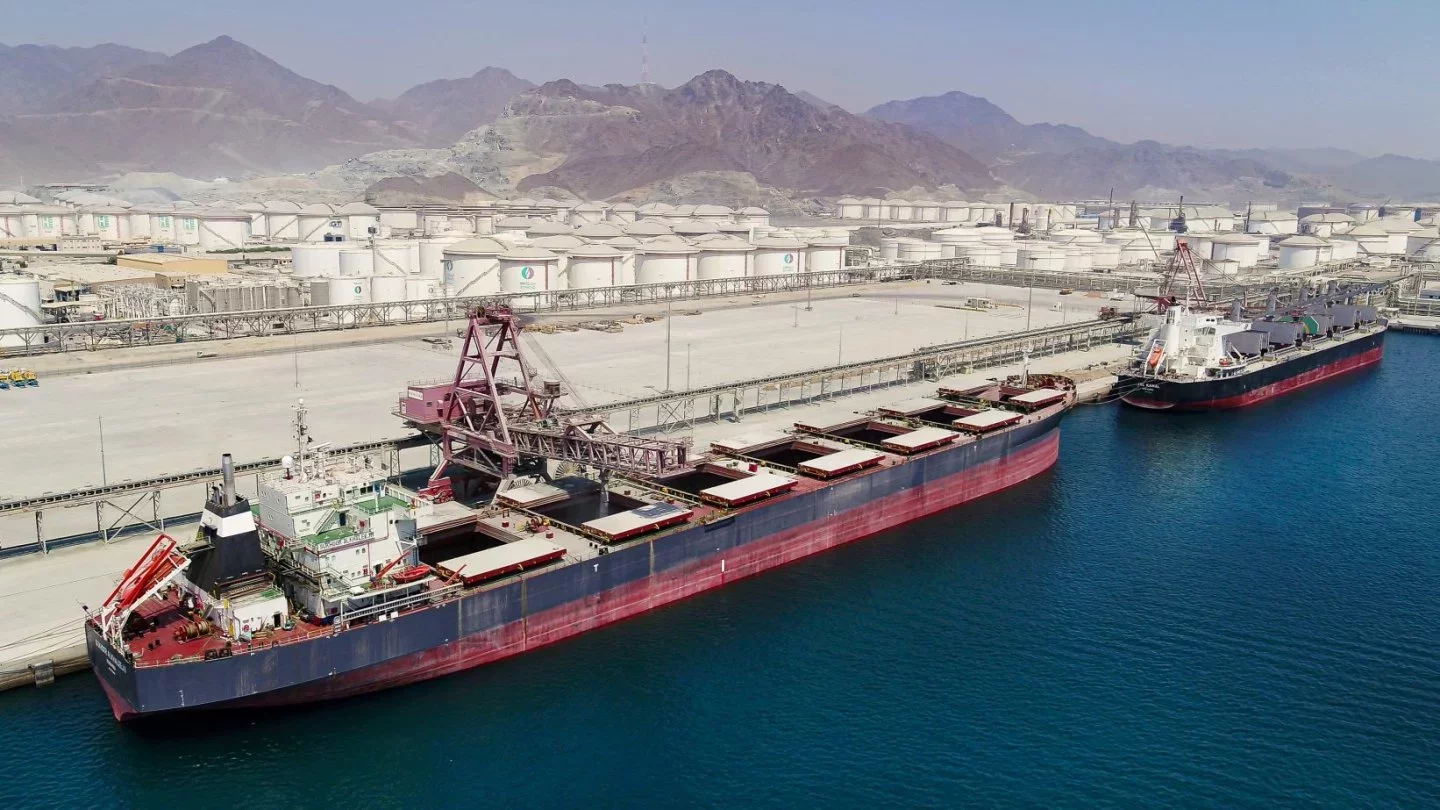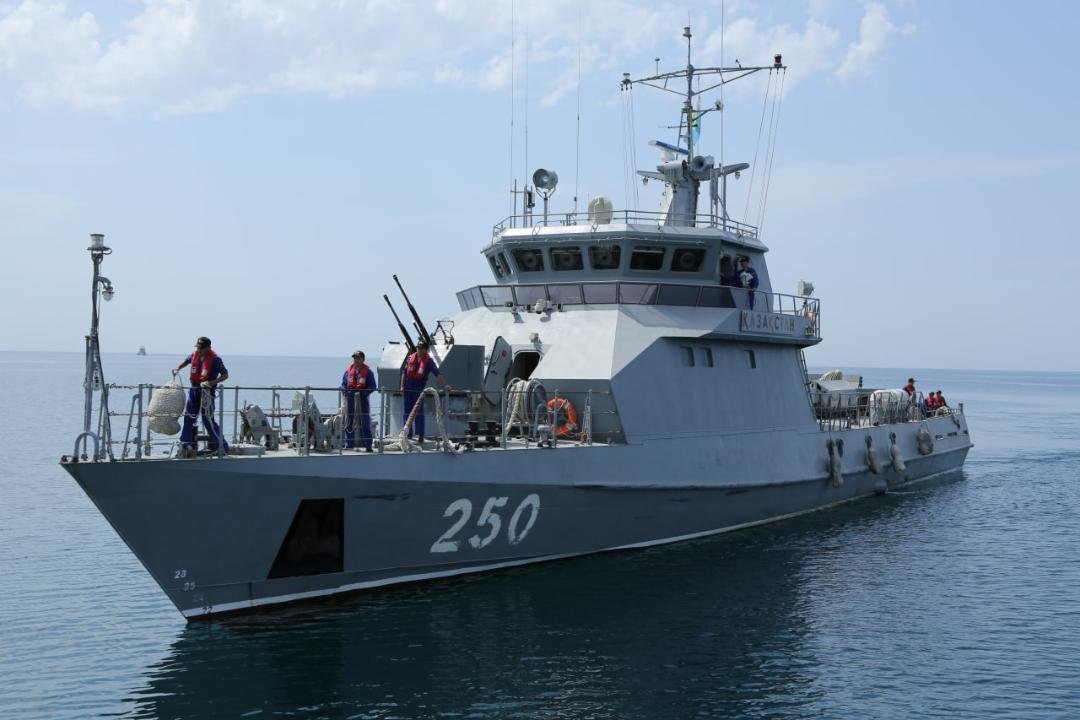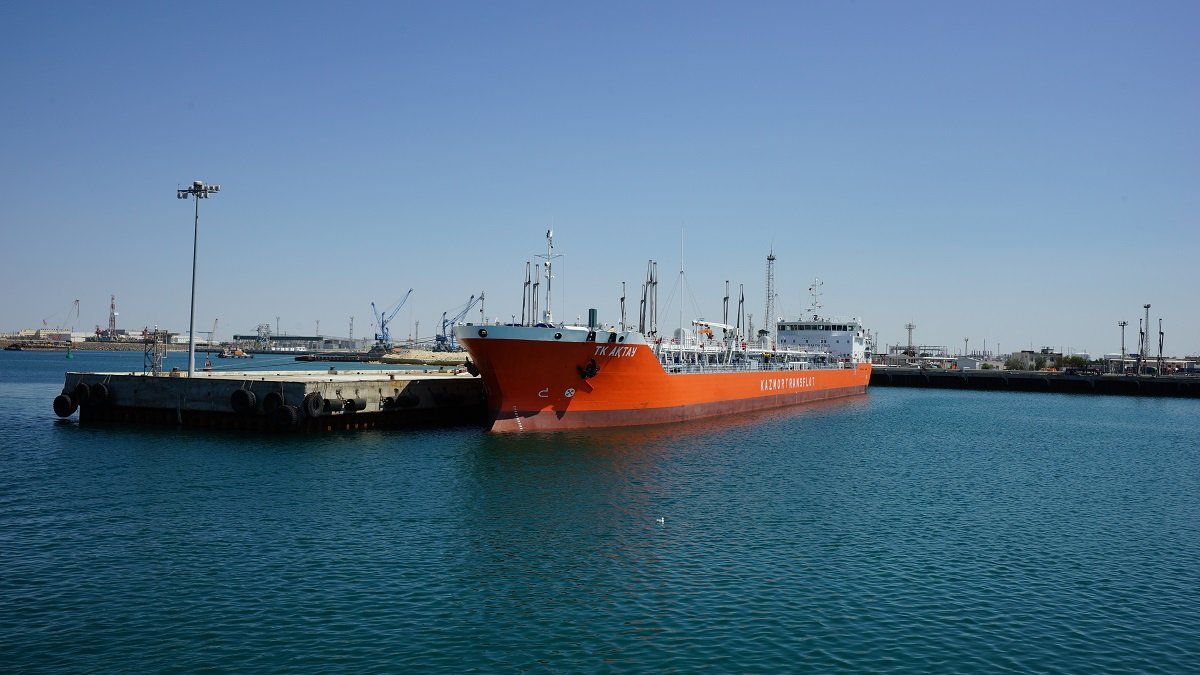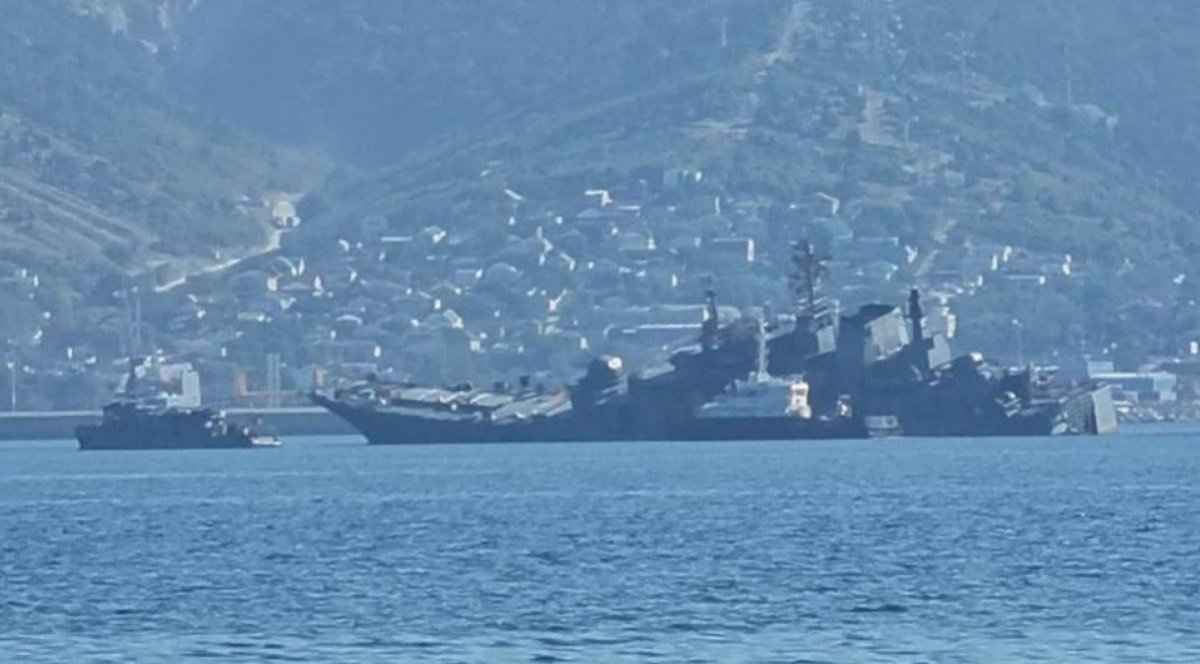Are Kazakhstan's Projects in the Caspian Sea What They Seem to Be?
 Photo: Port of Fujairah.
Photo: Port of Fujairah.
The Caspian Sea has become topical in the news lately. Information about how Kazakhstan and Türkiye will produce military vessels at the Ural Zenit Plant has surfaced. News followed about Kazakhstan agreeing with Iran on the direct export of products to Persian Gulf ports.
Orda.kz has spoken with director of the Institute of Asian Studies, Sultan Akimbekov, to understand these projects’ scope.
Orda: Sultan Magrupovich, in your opinion, how serious is the project on export from Kazakhstan to the ports of the Persian Gulf?
S.A: Kazakhstan is a landlocked country (a state without access to the sea – Ed.). And any options that allow us to go to open sea routes are good. Especially when there are many such directions and we find ourselves in the center of traffic flows. So, theoretically, it looks good.
But there are a few things here. Firstly, we already have transport links with Iran. For quite a long time there has been a route through the Tejen-Serakhs railway crossing on the border of Iran with Turkmenistan. But it is very difficult infrastructurally. When the question arose 1.5 years ago about how to transport goods, we thought that this direction through Serakhs would help us. And then it turned out that there is a very narrow "bottleneck" – there is not enough infrastructure.
 For comparison, we have made a lot of investments in infrastructure on the Chinese border, for example, the Altynkol and Khorgos crossings. So, there are no such capabilities on the Turkmen border with Iran. There is a lot of additional investment to be made there.
For comparison, we have made a lot of investments in infrastructure on the Chinese border, for example, the Altynkol and Khorgos crossings. So, there are no such capabilities on the Turkmen border with Iran. There is a lot of additional investment to be made there.
For example, Russia has been actively developing the North-South project over the past year and a half: a corridor that also passes through Iran. This is an alternative to its European routes. But it also faces difficulties due to underdeveloped infrastructure.
To increase the volume of cargo transportation across the Caspian Sea, it is necessary to deepen the bottom by 4.5 meters in the Olya port in the Astrakhan region. Iran also needs to invest a lot, in particular, in railways, and it does not have the resources for this. In addition, we have a different railway track with Iran. That is, it all comes down to investments in infrastructure. In addition, everything is not so simple with tariffs for cargo transportation. There is progress, but it's a long story anyway.
At the same time, most of the cargo – 70% - is transported by road in Iran. If we are talking about road transport, then in theory it was quite possible to use this direction before.
But there is one more issue – what will we bring to the ports of the Persian Gulf?
Orda: It sounded like it would be agricultural products. However, there are no specifics.
S.A: Our main export agricultural products are grain and flour. The main markets for their sales for Kazakhstan are Central Asia and Afghanistan. As far as I remember, together these supplies exhaust our potential, which is about 7 million tons per year of grain and flour in grain equivalent. We ship about 2 million tons of flour and grain in grain equivalent to Afghanistan alone. And this direction will only develop because the population is growing there, but there is no independent production.
There is still some potential for exporting meat, but we do not have large meat production facilities like in Argentina or Brazil. And probably won't because we have no conditions (for this - Ed.). Most of the livestock in Kazakhstan is in small and medium-sized farms and goes to the domestic market. That is, we cannot export large volumes of meat products either. In general, we have some opportunities to export agricultural products, but we are not talking about large volumes.
Orda: And how serious, in your opinion, are the plans for the joint production of military vessels by Kazakhstan and Türkiye? We are also talking about the Caspian Sea, aren't we?
S.A.: Türkiye, of course, has serious military production. Recently, they even built a helicopter carrier. But if we are talking about joint production with the Zenit plant in Uralsk, then these are small boats for the protection of the coastal zone. Our (people. Ed.) call them rocket-artillery, but in fact they are not equipped with guided missiles in the Western sense. Russia has the most serious fleet in the Caspian Sea. In particular, it has ships capable of launching Kalibr cruise missiles over long distances. Azerbaijan, Iran and Turkmenistan have fleets here, but the Russian one is the most significant.
Moreover, the water area of the Caspian Sea is small, and here any fleet is quite symbolic.
But the most important thing is that all the Caspian states have generally friendly relations and there are no conflict situations.
 Rocket and artillery boat "Kazakhstan" from the Navy of the Republic of Kazakhstan. Photo: Ministry of Defense of the Republic of Kazakhstan.
Rocket and artillery boat "Kazakhstan" from the Navy of the Republic of Kazakhstan. Photo: Ministry of Defense of the Republic of Kazakhstan.
Orda: There is a lot of talk now that Russia may collapse due to the conflict in Ukraine. Its main naval base in the Caspian Sea is located in Kaspiysk, in Dagestan. This region is not exactly stable. Maybe the vessels’ construction is meant for future defense in the potential event of Russia becoming destabilized?
S.A: I think it's unlikely. Firstly, the collapse of Russia is an overly apocalyptic forecast. Under any scenario, it will retain the centralization of the administration system.
If you look at the history of Russia, it always moves first to the over-centralization of power, then weakening occurs. Now we are witnessing, just, over-centralization. Some weakening is possible, but not a catastrophic scenario. I think all politicians in the world cannot imagine that one day something will suddenly happen to Russia, especially with all its accumulated nuclear potential.
Therefore, a relatively calm way out of the current conflict is more logical. For example, by freezing the conflict along the lines of the conditional scenario of the end of the 1950-1953 Korean War. First they will freeze, and then they will start negotiating a settlement and its terms. Negotiations could be conducted for a long time.
Orda: If there are only friendly relations between the Caspian states, then why hasn't a pipeline been laid under the sea yet?
S.A: The Caspian Sea has been a concentrated point of geopolitical confrontations for the past 30 years. Moreover, not only the five Caspian littoral states are involved in these contradictions, but also external forces.
In short, the West, represented by the United States, has always tried to support those transport corridors that would not pass through the territory of Russia, China and Iran. The main one was the direction through the Caucasus. But Russia, in turn, was not interested in this. For example, a very curious situation developed around pipelines along the bottom of the Caspian Sea. In Russia, they opposed it because they thought it threatened the environment.
That is, it is possible to build pipelines along the bottom of the North Sea, it does not threaten anything, but it is no longer possible in the Caspian.
Actually, there are still no pipelines in the Caspian Sea. That's why we carry oil to Baku by tankers. In turn, Turkmenistan cannot supply gas to Europe. Big politics, nothing personal.
Europeans are constantly talking about the possibilities of importing gas from the Caspian region. For them, this has become especially relevant in the current situation. Probably, they are also considering Turkmen gas. But there are no conditions for this yet. Precisely because the Caspian Sea is a complex region, including in legal terms.
 Tanker TK Aktau at the oil loading berth in the port of Aktau. Photo: Aktau Commercial Sea port.
Tanker TK Aktau at the oil loading berth in the port of Aktau. Photo: Aktau Commercial Sea port.
In 2018, a convention was signed that defined the Caspian Sea as a sea with the relevant sectors. And theoretically, today there are no problems with building a pipeline along its bed. But at the same time, it needs to be coordinated with all parties to the convention. Including with Iran and Russia, which have always been opposed, environmental threats being among the reasons.
Orda: Ukraine has attacked Novorossiysk through which the bulk of Kazakhstan's oil is shipped. In fact, Ukraine has demonstrated that this port is no longer so safe. Can this prompt an acceleration in the implementation of the Caspian pipeline project?
S.A: The political situation that we are currently observing does not have a very long horizon. Conversely, when you plan to build oil pipelines, it's a long story.
 A large landing ship "Olenegorsky miner" in the port of Novorossiysk after an attack by Ukrainian surface drones. Photo: Donbass News.
A large landing ship "Olenegorsky miner" in the port of Novorossiysk after an attack by Ukrainian surface drones. Photo: Donbass News.
Here we can draw such a parallel: many say that Russia will now build many military factories, militarize. Theoretically it is possible, but there is no time for it. While they are building, everything will come to an end.
It's the same here. You can throw all your strength into the construction of some kind of oil pipeline after the recent incident in Novorossiysk. But it takes time. It's not even about the construction itself. This is a matter of approvals, investments.
Yes, from a tactical point of view, decisions are made. We bought two tankers, began to carry more oil to the Baku-Ceyhan oil pipeline in Azerbaijan. But it was built 18 years ago, and it was used minimally by the same American companies producing oil in Tengiz.
Simply because the price of transportation through CPC was much cheaper. And if it is profitable to transport through Novorossiysk, then they will transport through Novorossiysk.
Of course, if something absolutely catastrophic happens there, then business will be strained, states will get involved, and they will start coming up with something.
But we see that the attack on Novorossiysk was connected with the cancellation of the grain deal. And now Russia itself is facing big problems in grain exports, because the cost of cargo insurance for entering Russian ports is growing sharply. Objectively, if Russia remains in the market format, then they will need to negotiate. And the probability that they will find some kind of solution for the same grain deal, and, therefore, for the safety of navigation in the Black Sea, is very high. This means that Novorossiysk will continue to work.
No matter how cynical it may sound, there is a big global bidding for the terms of the agreements.
Original Author: Igor Ulitin
DISCLAIMER: This is a translated piece. The text has been modified, the content is the same. Please refer to the original article in Russian for accuracy.
Latest news
- Oil Smuggling Trial Begins in Aqtau Over Seized Tanker
- Armenian Foreign Ministry Open to Outsourcing Transport Corridor Oversight
- A Second Kazakhstan-Born Individual Convicted of Treason in Russia This Month
- National Fund Council: Toqayev Receives Tie-Breaking Vote Power
- Kazakhstani Caught With Fake Passport in Bulgaria Fears Extradition
- Rubio and Lavrov Hold Talks at ASEAN Summit Amid Escalation in Ukraine
- Asset Recovery: Price on De Beers Earrings Cut by 23 Million Tenge
- Pashinyan and Aliyev Discuss Normalization Efforts in Abu Dhabi
- What Will Be Considered Stalking? The Ministry of Justice Explains
- Kazakhstan Prepared to Build Karachaganak Gas Plant With Alternative Contractor if Needed
- Former Russian Orthodox Priest Launches Petition for Constantinople Church Presence in Kazakhstan
- Asset Recovery and Management Company Launches New Auction for Land in Nazarbayev’s Hometown
- Olzhas Bektenov Discusses Digital Innovation and Travel Safety with Yandex Qazaqstan
- Man Detained over Attempted Arson at House of Ministries Entrance
- Producer Says Zemfira Concert Canceled Due to Poor Planning
- Kazakhstan's Energy Minister Comments on Russia–China Gas Pipeline via Kazakhstan
- UN Working Group Says Gulnara Karimova Was Arbitrarily Detained, Uzbekistan Responds
- Perizat Kairat Claims Abuse in Detention
- U.S. Senate Considers Julie Stufft for Ambassador to Kazakhstan
- Leviathan vs. Orda: Gulnara Bazhkenova Speaks Out on Efforts to Seize Her Media and Threats to Her Life

